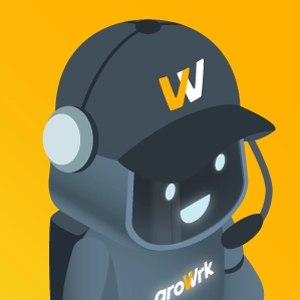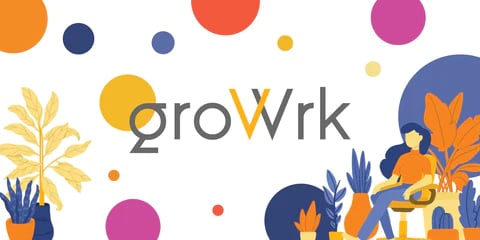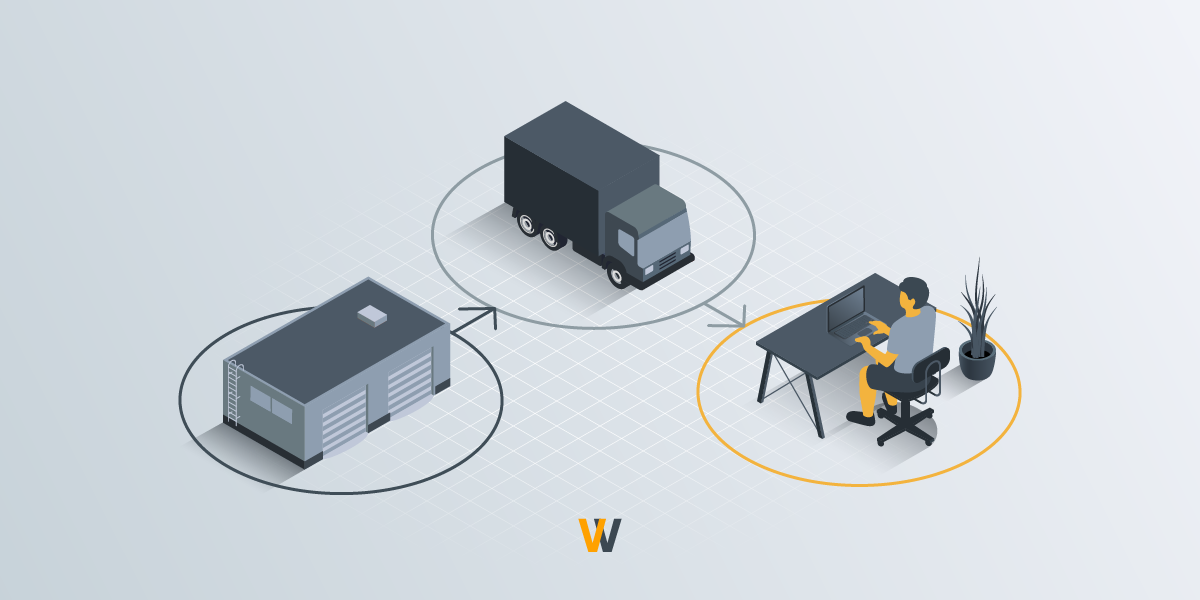Workplace Democracy: 5 Remote Work Tools Democratizing the Workplace
 Mark Gregory
Mark Gregory
With the rise of remote work, technology has become more ubiquitous in the workplace than ever before. Most companies in 2021 have a plethora of tools that automize processes, manage data and connect their employees regardless of where they live.
Besides the apparent productivity benefits, some software is also having a profound impact on workplace democracy. No, we aren’t talking about how the Metaverse will allow your boss to finally hear your opinion in a meeting because of your fancy new avatar (Sorry Zuck).
We are pointing to the tools that have made the workplace less hierarchal and increased employee involvement in company operations.
Tools that enable remote work like Slack, Monday, and Deel create equitable working relationships and make geography a non-factor in company roles.
In this article, we will review how remote work tool adoption has upended traditional company structures and increased workplace democracy.

What is workplace democracy?
The most straightforward description of workplace democracy is giving every employee an equal say in how the workplace operates and a more significant share in the company’s rewards.
In practice, workplace democracy could resemble something like codetermination in Germany. There is a law there that large companies must have nearly half the board of directors elected directly by the company’s workers.
Workplace democracy also could look more like the horizontal hierarchy of many startups like Convert.com, where each employee can make decisions without consulting a manager or CEO, and they all have shares in the company.
Finally, you have examples of collective bargaining for higher wages by unions, labor organizations, or worker cooperatives.

In remote work, it is polling an employee base of their working preferences before opening an office. Employees design the home offices for remote work policy and have the freedom to choose how and where they want to work.
Now, how are remote work tools democratizing the workplace further? How can software actually increase employee empowerment?
How to create a workplace democracy using Remote Work Tools
First, it would be helpful to understand that working from home during the pandemic and working remotely are two different things. People might be using the same tools to enable remote work but how they are using them is entirely different.
Working from home during the pandemic meant transferring office processes to employees’ living rooms, and unsurprisingly many people got burnt out from having to be always on call.

A complete transition to remote working means communicating asynchronously, relying heavily on documentation to maintain processes, and prioritizing outputs over constant progress updates.
If a company uses these remote work tools in this way, it can be an incredibly liberating experience for a workforce, which is partly why more than half of American employees want to continue working remotely full-time.
Which tools are the best examples of this?
1. Freedom of Speech (To a certain Limit)
Slack is the backbone of thousands of companies' internal communications. It pretty much facilitated the widespread adoption of remote work over the last 2 years.
Workers love it and bosses...not so much.

Take Andela, a company that recruits and trains promising African engineers to place in Western tech firms.
They were one of Slack's first customers.
What started as a tool to collaborate across various time zones quickly became the site where engineers could discuss the discrimination they faced in their assignments and overall low pay.
It eventually led to a full-scale rebellion against Andela's business model until the developers were given better salaries.
Then you have the cases of banned Slack channels.
At Netflix, a channel that was dedicated to women executives became a place to ridicule their male colleagues.
Or Apple, which had to monitor their remote work climate change channel because a petition started that went against their in-office mandate.
Slack has an incredible democratizing effect on organizations because leaders are forced to listen to their employee's opinions.
They then have to wait to respond.
It is one of the few B2B products bought into from the ground up-basically, a grassroots product.
What leaders choose to censor is an ethical and company values question.
There is no doubt that Slack isn't going anywhere soon, and it will be the place where remote company culture is formed for many organizations.
2. Equal access to opportunity
The power to hire anyone from anywhere makes organizations more diverse and will have profound impacts on everything from where talent congregates to global wages. The “foreign contractors” are now getting a seat at the table.
This is all through employer of record (EOR) software like Deel that makes international employees’ compliance and payment issues almost non-existent.

Source: Letsdeel.com
They can onboard your employees, create and sign their contracts, collect tax and employment documents, and run your payroll.
They also employ 200+ legal experts who specialize in international and domestic laws for all their markets.
Before the rise of EOR software, companies had to setup a local entity. Essentially, open up an office or headquarters in the country that they wanted to hire in.
Anyone outside this setup was considered a foreign contractor and rarely had the same benefits (or pay) as a full-time employee.
Regardless of the length of the contract, most contractors worked on a per invoice basis where they had little to no say on the tasks they were assigned.
They could have been developers, designers, or even marketers, but you would rarely see any of them rise within the ranks of an organization.
With the adoption of remote work, thousands of companies now use software like Deel to add skilled professionals from anywhere in the world to their teams.
Instead of outsourcing, companies realize bringing a full-time international employee aboard is much more profitable (and cost-effective).
As a result, geography may not necessarily determine your salary in a company.
All levels of the organization with international employees start having decision-making roles rather than having it centralized in one headquarters.
The adoption of EOR software is enabling more and more companies to become distributed and decentralized.
3. Empowering employees to become decision makers
The first project management tool was actually created in 1917 by Henry Gantt. It was a scheduling diagram called the Gantt chart (very creative for the early 20th century) and helped build the Hoover Dam.
This dam helped build the cities of Las Vegas, Phoenix, and, of course, Los Angeles, so thank you, Gantt.
Since the rise of mobile and cloud apps in 2021, project management software has become an integral part of most organizations. It essential is where all processes are tracked, progress and milestones are shown, and where work is submitted.
If you wanted to do a complete employee evaluation, the best place to look is in a tool like Monday, where you can see how often they completed projects on time and the quality of their work.

So why does this increase workplace democracy?
Well, in most traditional office hierarchies, you would have managers assign tasks and meetings for project updates. All deadlines would be set with total disregard on how it affected their team.
The old Office Space stereotype of the robotic manager asking, “Did you send over those TPS reports?” is completely negated when you just reply with “Did you check Asana?”

When your distributed workforce is using a project management system, it is much harder to micromanage. Progress updates are summarized in notifications, and delegation becomes more evenly distributed.
Most importantly, employees are empowered to make their own decisions in terms of prioritizing tasks. They have more freedom to tackle projects without so much manager oversight.
The manager moves into more of a support role, rather than one in charge of supervising people.
Finally, it is hard to take credit for work that you didn’t do when the person’s name is tied to the task that is submitted.
Cross cultural teams get back much of the time spent planning projects and updating results to focus on their own lives while working asynchronously.
This leads to more engaged employees and a more even power dynamic where employees are inspired to improve processes rather than just follow them.
4. Creating a transparent workplace
Notion and other document management systems are so hot right now that Microsoft created a carbon copy of its software, and Almanac has raised over 34 million dollars.
The once dull element of office work has gotten a gritty 2020 reboot, and it is so much more than Google Docs.

Source: Notion.co
In most companies before the pandemic, each department or even a single person controlled the information.
It didn’t matter the type of information, it was concentrated within their records, their software, and that knowledge was only shared when requested or presented.
Hierarchies formed where some departments had more say in how the budget got distributed. Mostly this was because they had a stranglehold on all processes or reporting important results.
When companies went remote in 2020, employees or managers didn’t have the luxury to walk over to a colleague’s desk to explain how something worked.
Part of the reason people hated remote work initially was they had to build out all the manual processes of the office and were working until the middle of the night (with managers still asking).
The ones who took the time to document everything and had one central virtual location where knowledge is stored are the ones pushing to stay remote or hybrid.
They created a more transparent company and used tools like Notion to make every aspect of the organization visible.
There are no silos where information is hoarded or favoritism for data gatekeepers.
It empowers employees to work efficiently on their own time and make decisions without constantly seeking approval. Everyone on the team has access to the same information, and there is no need to ping colleagues when they have a blocker frequently.
A more transparent organization is a more democratic one.
5. Equal access to resources
Ah, the global supply chain. The thing everyone forgets about until they can’t get what they ordered on Amazon.
What many people and companies in the United States and Europe are experiencing now is a reality for most. A constant struggle to get quality products.

It was common for departments or employees located farthest from the headquarters to have inferior equipment in international companies. This wasn’t only because some companies are cheap; it has more to do with geography and customs policy.
For many countries in Latin America or Africa, it is so expensive to ship a Macbook due to customs taxes that it makes no sense financially. Even sending devices from the U.S to the EU can be a logistical and costly undertaking.
As a result, a situation of economic inequality with compensation and productivity was created in these companies.
When some workers can achieve better results only on their computing power and access to technology, it diminishes workplace democracy. A companies team of developers in Colombia or India should have the same devices as their marketing team in New York.
The same goes for talent and opportunity. There may be a talented IT specialist in Guatemala, but they are excluded from hiring because they can’t receive a data-compliant laptop.
GroWrk is building a global network of vendors and partners to solve this supply chain crisis. With their catalog, you can send laptops and other devices to over 150 countries in the world.
Whether you need to send a Macbook to Argentina or a Lenovo to Kenya, there is equal opportunity for hardware for any distributed workforce.
GroWrk can act as a trusted courier and storage facility if a company already has a substantial inventory. Their global distribution and warehouse partners make storing or sending devices across borders simple.
Companies growing like crazy can use their dashboard to onboard and place device orders for new remote employees in less than two minutes.
If a remote employee leaves, managers just have to switch their status to off boarding, and GroWrk will coordinate the entire equipment recovery process.
Distributed teams reap the same company benefits regardless of their location and have the tools they need to be equally as productive.
How workplace democracy affects engagement
Having a more democratic workplace means more employee engagement. Employees who feel like their opinions are heard and considered are much more likely to stick with an organization than if they felt like they were just a number.
Companies with a more balanced distribution of decision-making power have higher retention rates, while ones that are run like dictatorships have much higher turnover rates. When everyone has equal access to the same company resources, they won’t constantly be looking for the next best opportunity.
By creating an environment where decisions that affect employee livelihood are contemplated with employee participation, there is much less likely a chance for people to feel isolated or alienated.
Wrapping Up
For better or for worse, technology is inseparable from our lives. From how the modern family feeds their children to how you move from place to place in a city, it all takes place in an app.
The tools that you choose to embrace will have a profound impact on your personal and professional life. Companies have the choice of how they will move through these exciting remote times.
Hopefully, they continue to select tools that increase workplace democracy.
Grow remote with GroWrk. We provide and manage laptops, devices, other equipment and services to remote teams in over 150 countries.







